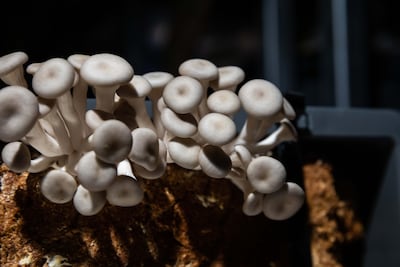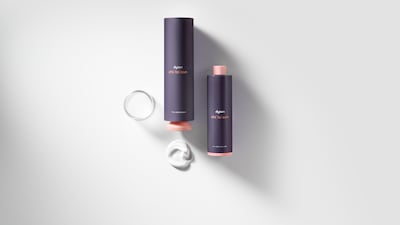Eight years after it launched its viral hairdryer, British tech company Dyson is digging further into the beauty industry with its first range of “wet” haircare products.
The company, best known for revolutionising vacuum cleaners, has launched two styling products under its Chitosan range. The pre-style cream and a post-style serum come in four variants for different hair types, from straight to curly.
The chitosan range is designed to retain hair's flexibility, giving it movement and shine without making it stiff, the company says. The unisex range is suitable for all hair types, and is guaranteed to work even in high humidity.
But what is chitosan?

According to healthline.com, chitosan is derived from chitin, a fibrous compound found mainly on the hard outer skeletons of crustaceans and in the cell walls of some fungi. Biodegradable, chitosan is used for manufacturing antimicrobial films for food packaging. And due to its ability to form a gel, it has also been used in wound dressing.
Chitosan supplements, mostly derived from shellfish, have long been sold for their purported weight-loss properties, touted as “fat blockers”. But the National Institutes of Health in the US has noted that there is not enough strong evidence to support these claims.
“Historically, commercial chitosan samples were mainly produced from chemical deacetylation of chitin from crustacean sources,” the National Center for Biotechnology Information in the US said in a report published in 2021. “More recently, chitosan from fungi is gaining interest in the market, driven by vegan demands.”
In 2019, the global chitosan market size was valued at $6.8 billion and was expected to grow by 24 per cent by 2027, the report added. The main drivers for the growth are the increasing use of the polymer in the pharmaceutical, biomedical, cosmetics and food industries, it said.
Dyson's chitosan formula is derived from oyster mushrooms, from the same compound that gives the fungi its shape.
“Each bottle harnesses the power of up to eight oyster mushrooms,” says Justina Mejia Montane, the product development director of new ventures at the company.

Dyson isn't the first company to use chitosan as a haircare ingredient. Many brands, from Herbal Essences to Briogio and Aussie, have been using it as an active ingredient in their products for years. Equally, mushrooms too are having a moment in the beauty industry thanks to their high vitamin, mineral, protein and fatty acid levels.
While new beauty products are a bold move for a tech company, Dyson is not the only one. Another British brand, GHD, known for its hair straighteners, already sells a range of haircare products.
Dyson's reliability engineer, Kate Craft, said the move into beauty was carefully planned. “It didn’t just start with the launch of the Supersonic. We’ve been researching hair for more than a decade and have invested over £100 million into laboratories around the world,” she told Forbes in 2022. “We’ve continued to research and develop tools to meet our mission: products for every hair type, every style, with less damage.”
The Dyson Chitosan range is expected to be available across the Middle East next year.

